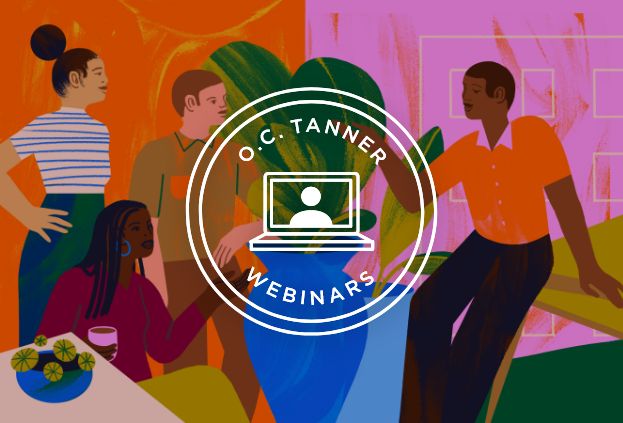Employees Want More Fulfillment–Here’s How To Help Them Find It

Updated on
March 18, 2025
18
March
2025
Employees are looking for more fulfillment in every aspect of their lives—especially their jobs.
Research shows that personal fulfillment is the single largest contributor to a positive employee experience. A PwC survey found that 83% of workers said “finding meaning in day-to-day work” was their top priority.
Cultures that focus on fulfillment see clear improvements. The Harvard Business Review notes that “engaged employees perform better, experience less burnout, and stay in organizations longer.”
What is fulfillment?
Fulfillment is a feeling of contentment or completeness that comes from the accomplishment of our most important goals.
Fulfillment occurs when we identify strongly with a purpose and connect to others in meaningful ways.
So why aren’t employees feeling fulfilled? Three big reasons: Not enough challenge, not feeling appreciated, and a lack of ownership. When any one of these is missing, people won’t feel fulfilled at work.
Why aren’t employees feeling fulfilled?
There are three big reasons why employees aren't feeling fulfilled at work: Not enough challenge, not feeling appreciated, and a lack of ownership.
And lack of fulfillment is currently a big challenge. Nearly one third of employees are unfulfilled in their jobs. These employees are less likely to promote their organizations or contribute to success.
Unfulfilled employees are also much more likely to leave.
Meanwhile, highly fulfilled employees plan to stay at their organizations three years longer than unfulfilled employees.
An idea like fulfillment may seem abstract and difficult to address or improve. But we do know four specific areas that strengthen employee fulfillment.

- Balance. How we actually spend our time compared to how we want to spend our time, and the impact of those activities on other aspects of our lives. It requires having the time and autonomy to accomplish the things at work and in our personal lives that matter most to us.
- Community. How we interact with the individuals and groups around us. A feeling of acceptance and belonging.
- Growth. A progression, enhancement, or improvement in one or more areas of our life. The sense of mastery: developing and applying skills to contribute to a project or goal.
- Purpose. The reason for what we do and the choices we make. The importance of our activities and why they matter.
How do we create fulfillment for employees?
Support and encourage balance
Balance isn’t simply dividing time neatly between work and not work. Organizations should give people a say in how they work, as well as what work they do.
Establish policies, practices, and expectations that support balance. Ensure employees have opportunities to take time off without feeling guilt. Provide flexibility in where and when employees do their work.
Strengthen community
Highlight a sense of community through shared values, goals, and purpose. Train leaders to get to know employees individually and show appreciation for their unique contributions.
Offer opportunities for growth
Growth is so much more than raises and promotions. It’s critical for leaders to provide consistent opportunities for skill development, networking with peers and leaders, and coaching and mentorship.
- Create ways for employees to upskill or reskill.
- Invite employees to work on special projects.
- Recognize employees when they accomplish their goals.
Provide purpose
Refine your purpose and communicate it often. Connect employee and business goals to it. Use public and private recognition to showcase how employees contribute to it.
Encourage leaders to learn what employees need to find meaning in their jobs. Help employees define and accomplish goals that are personally meaningful to them.
Highly fulfilled employees plan to stay at their organizations three years longer than unfulfilled employees.
Organizations must take action to improve employee engagement, or risk losing talent and great work. The research is clear: As you focus on balance, community, growth, and purpose you will strengthen employee fulfillment, improve retention, and enjoy a thriving workplace culture.
For a more in-depth look at fulfillment and how to build a solid work community, check out the Global Culture Report.



